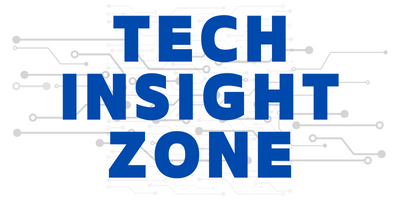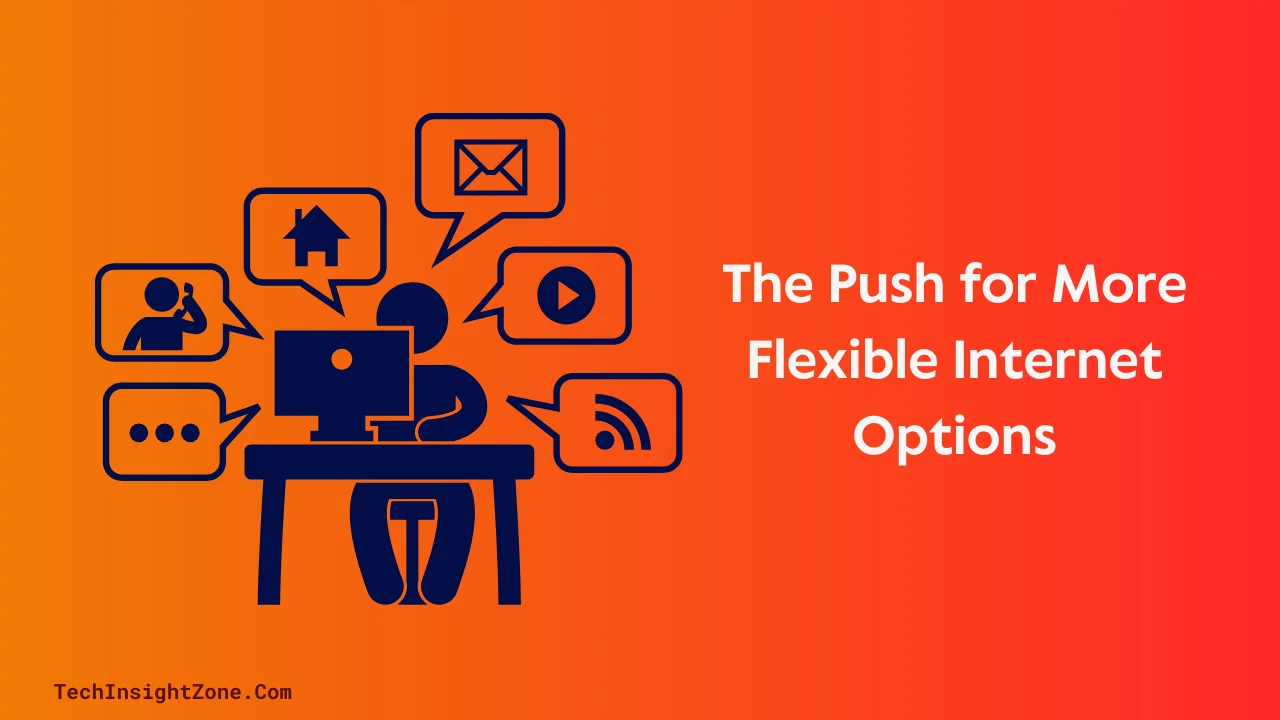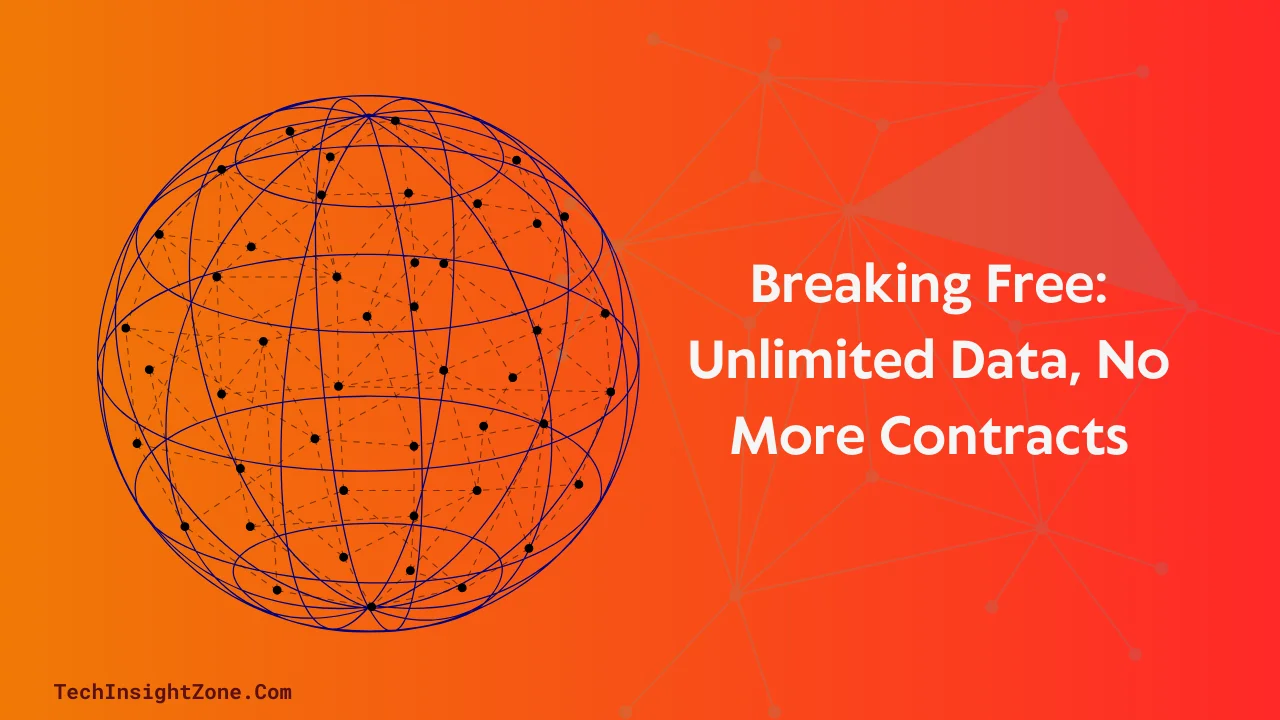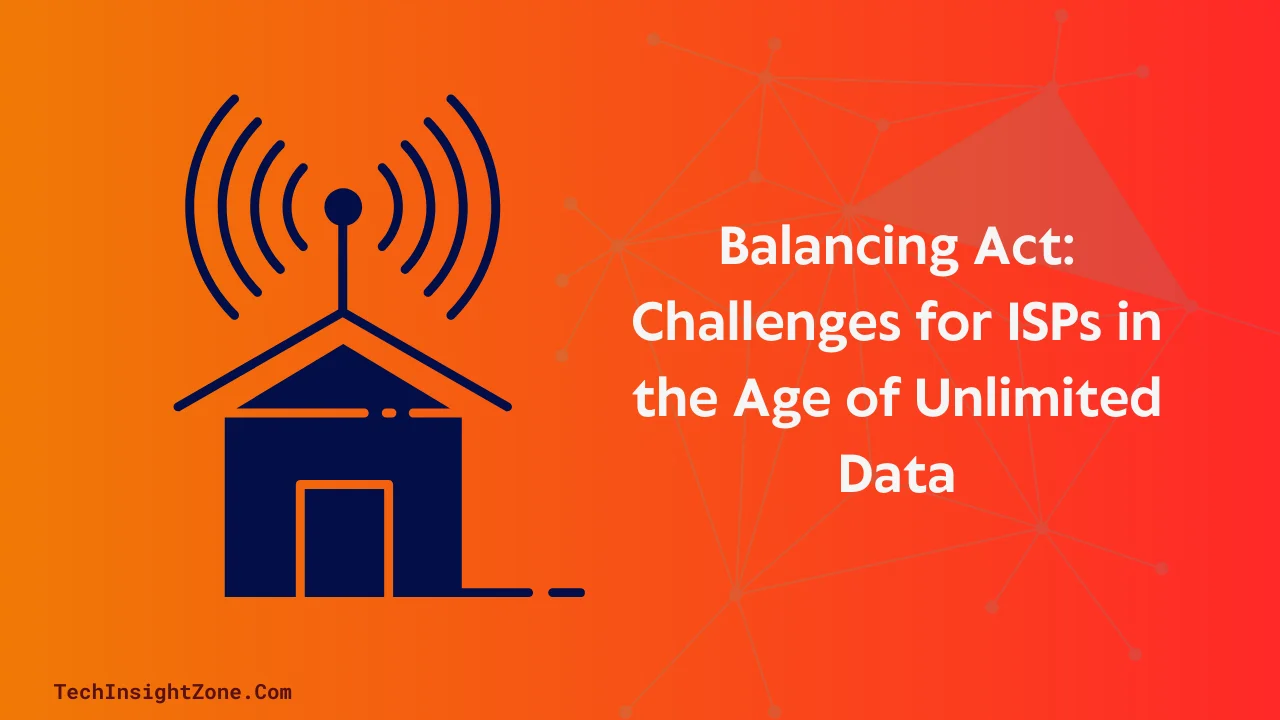Early internet users were accustomed to the constraints of dial-up connections. With the advent of broadband, data caps became a common practice for ISPs managing network traffic.
However, as user reliance on data-heavy applications like streaming and video conferencing grew, these caps became increasingly inadequate. This evolution in user experience has driven a surge in demand for unlimited data and no-contract internet, forcing ISPs to rethink their business models.
In this analysis, we will explore the key drivers behind this industry transformation, the challenges it presents, and the potential future of internet access.
Key Drivers Fueling the Demand for Unlimited Data and No-Contract Internet
1. The Rise of Streaming Services:
Streaming services like Netflix, Disney+, and YouTube have revolutionized entertainment consumption. On-demand HD and UHD streaming have become commonplace, driving a significant surge in global internet traffic.
Sandvine’s 2024 Global Internet Phenomena Report revealed that global internet traffic now exceeds 33 exabytes per day, with the average user consuming 4.2 GB daily.
Streaming accounts for over 65% of total internet traffic, creating strong consumer demand for plans that can handle the bandwidth demands of high-quality video. For example, 4K streaming often requires upwards of 25 Mbps, putting a strain on capped data plans.
2. Increased Remote Work and Virtual Meetings:
The pandemic accelerated the shift to remote work, and its impact is enduring. Millions now rely on stable, high-speed internet for virtual meetings, cloud-based tools, and file sharing.
The concurrent use of multiple devices and the prevalence of high-bandwidth applications have made data caps a significant pain point.
A Pew Research Center survey found that over 60% of remote workers consider their internet connection critical to their job performance, prompting ISPs to offer unlimited data plans.
The economic impact of remote work, estimated at billions of dollars in productivity and cost savings, further underscores the importance of reliable internet.
3. The Shift Away from Restrictive Contracts:
Today’s consumers value flexibility. From streaming subscriptions to meal kits, month-to-month services are preferred, offering the freedom to cancel or switch without penalties.
Traditional internet contracts with 12- to 24-month commitments and hefty early termination fees (ETFs) are increasingly out of sync with this mindset.
This trend is further supported by CCW Digital’s 2024 Consumer Preferences Survey, which reveals that customers are prioritizing services with transparent pricing and flexible cancellation options.
Consumers are increasingly prioritizing flexibility and the ability to switch providers easily, even if it means potentially paying slightly more in the short term. This shift has prompted many top ISPs to embrace no-contract internet plans to attract and retain customers seeking hassle-free service.
4. Consumer Demand for Fair Pricing:
Another driving force behind the industry shift is the demand for transparent pricing. Consumers want to know exactly what they’re paying for, without hidden fees or sudden price hikes after a promotional period ends.
No-contract plans often bundle unlimited data to provide a straightforward, predictable monthly bill. Consumer preference for transparent pricing aligns with a broader trend of providers striving to meet evolving consumer preferences.
For example, Spectrum’s no-contract internet plans include unlimited data and free antivirus software, catering to customers who want reliable service without worrying about overage charges or long-term commitments.
We hope that this trend of transparent pricing and consumer-centric offerings will extend beyond regional providers like Spectrum and become a global standard.
5. Technological Advancements Supporting the Trend:
Advancements like 5G and fiber-optic networks are enabling the shift to unlimited data and no-contract plans. Fiber provides faster, more reliable speeds, making it easier for providers to offer unlimited data without compromising network performance.
5G home internet expands access to high-speed internet without traditional wired connections. T-Mobile and Verizon are leading the way in 5G home internet with no contracts and unlimited data.
Fiber optic networks, unlike DSL and older cable technologies, offer symmetrical upload and download speeds, crucial for data-intensive tasks.
Challenges and Considerations for ISPs & Alternative Solutions
While beneficial for consumers, unlimited data and no-contract plans present challenges for ISPs.
- Network Congestion: Increased data usage can lead to network congestion, especially during peak hours. ISPs must invest in infrastructure upgrades, but also explore traffic management techniques like Quality of Service (QoS) prioritization and potentially, in the future, forms of congestion pricing during peak usage, similar to models used by mobile data providers.
- Throttling: Speed throttling (slowing speeds during high usage) remains a concern. Transparency is crucial to maintain customer trust.
- Alternative Solutions: While unlimited data is popular, tiered data plans with higher caps could cater to users with moderate needs, potentially at lower price points. This could manage network load while offering more choice and allow ISPs to cater to those who don’t need unlimited data, potentially saving them money.
The Role of Regulation: The FCC and Data Caps
Regulatory bodies like the Federal Communications Commission (FCC) also play a crucial role in shaping the internet landscape. The FCC has taken notice of data cap practices. In October 2024, the FCC launched an inquiry into data caps, examining their necessity in the context of increasing data consumption.
This inquiry, reported by Reuters, aims to understand the impact of data caps on consumers and competition, potentially leading to stricter regulations, transparency requirements, or even a ban on such practices. This regulatory oversight can further influence how ISPs structure their data plans and manage their networks.
The Future of Internet Plans and Implications
Looking ahead, the trend toward unlimited data and no-contract plans is expected to continue. Several factors will contribute to this evolution:
a. Technological Advancements: Emerging technologies are crucial in supporting the shift to higher data usage. Advancements like Wi-Fi 7 and faster fiber optic connections provide the necessary infrastructure for increased bandwidth. The development of 6G technology promises even greater speeds and lower latency, potentially revolutionizing internet access.
b. Expanding Access: Satellite internet services, such as Starlink, are poised to play a significant role in expanding access, particularly in rural and underserved areas. These services have the potential to challenge traditional ISPs and bring high-speed internet to a global audience.
c. Implications for the Internet Ecosystem: The move towards higher data consumption has several important implications:
- Net Neutrality: Ensuring fair access and preventing content prioritization will become even more critical as data usage increases. As internet usage grows, understanding online safety becomes even more critical. Learn how to protect yourself from common online threats.
- Content Delivery Networks (CDNs): CDNs, which cache content closer to users, will play a vital role in managing traffic and ensuring smooth delivery of data-intensive content.
- Sustainability: The increased energy consumption associated with higher data usage necessitates exploring more sustainable internet infrastructure and practices.
- In-Home Connectivity: The growing popularity of mesh Wi-Fi systems, designed to improve in-home coverage, further contributes to higher data consumption.
Final Words:
The convergence of evolving consumer expectations, technological advancements, and regulatory scrutiny is reshaping the internet landscape. Providers that proactively adapt to these changing demands, embracing transparency, flexibility, and robust network infrastructure, will be best positioned for long-term success.
The days of restrictive contracts and limited data are waning, paving the way for a more consumer-centric internet experience where choice, value, and seamless connectivity are paramount. Ultimately, consumers will benefit from increased competition and innovation in the internet service market.






